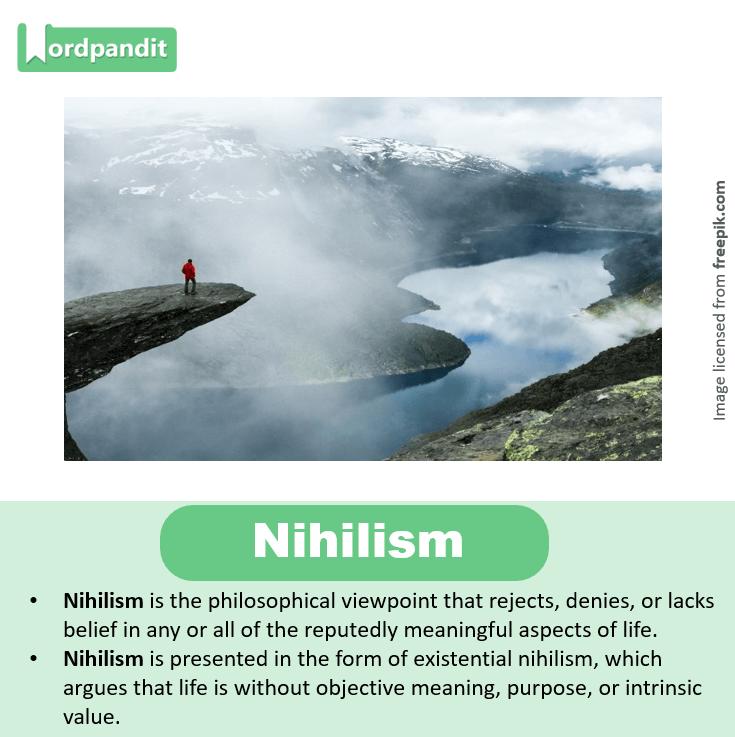1. Atrocity
• An extremely wicked or cruel act, typically one involving physical violence or injury.
Usage: In late 1930s and early 1940s Europe, though few knew the extent of Hitler’s atrocities, the atmosphere of hate was palpable.
2. Academic Exercise
• The term ‘academic exercise’ has long had a pejorative meaning, as something with little or no relevance to the world beyond academe.
Usage: The proposed distinction between the heritage industry and its indigenous counterpart is not merely an academic exercise.

3. Nihilism
• Nihilism is the philosophical viewpoint that rejects, denies, or lacks belief in any or all of the reputedly meaningful aspects of life.
• Nihilism is presented in the form of existential nihilism, which argues that life is without objective meaning, purpose, or intrinsic value.
Usage: When I expressed this newfound nihilism to my mother, she said it reminded her of George Carlin’s “saving the planet” joke.

4. Red tape
• Red tape is an idiom that refers to excessive regulation or rigid conformity to formal rules that is considered redundant or bureaucratic and hinders or prevents action or decision-making. It is usually applied to governments, corporations, and other large organizations.
Usage: The new system was supposed to cut through bureaucratic red tape by allowing industries to regulate their own apprenticeships.
5. Clamour
• A loud and confused noise, especially that of people shouting.
Usage: The rocks of the seabed are far richer in valuable metals than those on land and there’s a growing clamour to get at them.
6. Espousal
• An act of adopting or supporting a cause, belief, or way of life.
Usage: When the Black Panthers formed in Oakland in 1967, their espousal of violence was a sharp turn from the peaceful protests of the civil rights era.
7. Statutory
• Required, permitted, or enacted by statute.
Usage: Statutory controls over prices.
• Having come to be required or expected through being done or made regularly.
Usage: The statutory Christmas phone call to his mother.
• Statutory law or statute law is written law passed by a body of legislature. This is as opposed to oral or customary law; or regulatory law promulgated by the executive or common law of the judiciary. Statutes may originate with national, state legislatures or local municipalities
8. Muster
• Collect or assemble a number or amount.
Usage: I managed to muster some reassurance that I was not alone in my curiosity.

9. Expropriate
• State or an authority to take property from its owner for public use or benefit.
Usage: Their assets were expropriated by the government.
10. Incapacitation
• Incapacitation in the context of criminal sentencing philosophy is one of the functions of punishment.
• It involves capital punishment, sending an offender to prison, or possibly restricting their freedom in the community, to protect society and prevent that person from committing further crimes.
Usage: Incapacitation is one of the mechanisms through which prisons contribute to crime prevention.
11. Obliterate
• Destroy utterly or wipe out.
Usage: The memory was so painful that he obliterated it from his mind.











